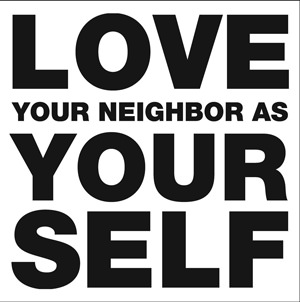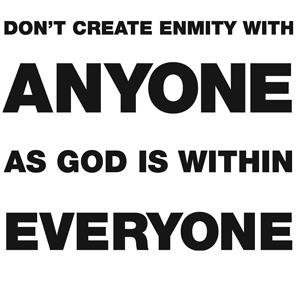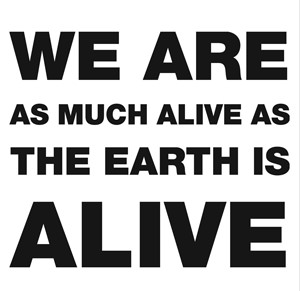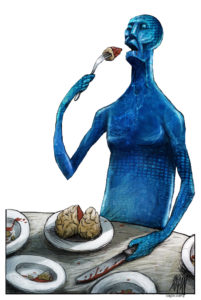All the Rest Is Commentary
At the Jewish Community Center in Manhattan through July 30 is an exhibition called "All the Rest Is Commentary." In it, Beth Grossman explores 12 Golden Rules from various world religions.
At the Jewish Community Center in Manhattan through July 30 is an exhibition called “All the Rest Is Commentary.” For this exhibit, Beth Grossman explores 12 Golden Rules from various world religions. She not only displays these rules, but engages people in conversations on topics related to the text in discussions called “table talks.” Grossman has used the metaphor of a tablecloth, as it represents the traditionally feminine aspects of society and because the table is a place where family and friends gather to discuss world issues such as religion, have general conversations and express gratitude.
I asked Beth Grossman about the motivation behind this work.
Beth Grossman: I was doing the research and found that every major religion has a version of the Golden Rule. Almost every famous intellectual and philosopher has at some point in time written something or commented upon the Golden Rules, maybe not calling it that, but in some ways referring to those kinds of issues. Yet, somehow, it is really hard for us to follow it.
So, I started asking everybody I knew, “What is the Golden Rule?” People said the damnedest things, like jokingly, “He who has the gold rules.” And I realized the reason why they said this was they really didn’t know the Golden Rules. Also, they were confusing the words, like saying, “Do unto others as they do unto you.” Or when I spoke with people about why it is so hard to follow the Golden Rules they would say, “Well I’m not going to do it until everybody else does — that would be stupid.” The other key piece I got out of my interviews was from the commandment of “Love your neighbor as yourself.” I found that people don’t really love themselves in this culture. The entire advertising industry has capitalized on that fact. You’re either too thin, you’re too fat, you’ve got pimples, you’ve got gray hair, thin hair, thick hair — whatever you have it’s not good enough to love yourself. So that is when I started to think, let me look at these text in an in-depth way.
Susanne Strimling: Can you elaborate about this specific rule and what greater meaning it might have?
BG: I think that there is a sense of loss of connection and this has made it harder to remember that we love ourselves. So we find other ways to act like we love ourselves: to buy something, to have the latest of whatever, or to have a lot of connections on Facebook, me and my 500 friends that I never talk to and I never see. I can look at that number growing and say I have 500 friends on Facebook. Or a lot of things make us think we love ourselves. In the conversations that I had, money came up a lot. For example, people would say we are working hard for our kids and by doing so we have a sense of loving our family. But in the end it is as if there is too much of nothing. Ultimately, it is the real face time and feeling connected to our family and friends that helps us feel that we are part of something bigger than ourselves and helps us feel that we are contributing to the world. I think those are the kind of factors that help us know that we love ourselves.
SS: How do the Golden Rules reflect the cultures that they originate from?
BG: The way that they are worded gives us a sense of the culture. “We are as much alive as the earth is alive” from the Native American tradition makes it clear that this is from an earth-based culture and imparts a sense that we are nothing if we don’t take care of our earth. It expands the rule from a more personal one to include Mother Nature. When I read “The heart of the person before you is a mirror, see there your own form” (Shinto), it reminds me of a Zen garden. This one, “No one of you is a believer until he desires for his brother that which he desires for himself” (Islam), tells me that in order to be a believer you need to accept a set of tenets and that it is important to be part of this community of believers, and it also tells me that it is patriarchal religion.



Independent journalism is under threat and overshadowed by heavily funded mainstream media.
You can help level the playing field. Become a member.
Your tax-deductible contribution keeps us digging beneath the headlines to give you thought-provoking, investigative reporting and analysis that unearths what's really happening- without compromise.
Give today to support our courageous, independent journalists.






You need to be a supporter to comment.
There are currently no responses to this article.
Be the first to respond.